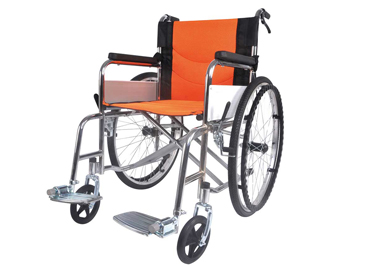Welcome to our websites!
different types of rollator walkers
Understanding Different Types of Rollator Walkers
Rollator walkers have gained popularity as essential mobility aids for individuals experiencing difficulty in walking. Designed with various features to accommodate different needs, these aids provide both support and convenience. Understanding the different types of rollator walkers available in the market is crucial for selecting the right one to enhance mobility and ensure safety.
1. Standard Rollator Walkers
Standard rollator walkers are the most common type. They typically feature a lightweight aluminum frame with four wheels, handle grips, and a seat. These walkers are ideal for individuals seeking stability while walking, as well as the option to rest when needed. Standard rollators often come with a braking system for added safety and can be easily folded for storage and transportation. They are suitable for indoor and outdoor use, making them a versatile choice for many users.
2. Bariatric Rollator Walkers
For individuals with a larger body frame, bariatric rollator walkers are specifically designed to support higher weight capacities. These walkers are sturdier and often wider than standard models, providing greater stability. Bariatric rollators also typically come equipped with reinforced frames, larger seats, and more robust wheels to ensure safety and durability. When choosing a bariatric rollator, it is essential to verify the weight limit and ensure that it meets the user’s needs.
3. Three-Wheel Rollator Walkers
Three-wheel rollators are an excellent option for those who require a more compact design. Lightweight and easy to maneuver, these rollators are especially suitable for navigating tight spaces. The three-wheel design allows for a tighter turning radius, making them ideal for indoor use or crowded public areas. While they may not offer the same level of stability as four-wheeled models, their ease of use and portability make them a favorite among some users. Many three-wheel walkers also come with a basket or bag for carrying personal items.
different types of rollator walkers

4. Heavy-Duty Rollator Walkers
Heavy-duty rollator walkers cater to users who may require additional support due to medical conditions or recovery from surgery. Often constructed from robust materials and featuring larger, treaded wheels, heavy-duty rollators provide excellent stability on various terrains. These walkers can support higher weight limits and often include features such as adjustable seat heights and ergonomic handles for enhanced comfort. They are designed to be durable and can handle the rigors of daily use, making them suitable for individuals with more challenging mobility needs.
5. Rollator Walkers with Seats
Some rollator walkers are specifically designed with integrated seats, allowing users to rest whenever they need. These models come equipped with a comfortable seat that can be utilized in parks, shopping areas, or during walks. The ability to collapse the walker into a seat is particularly beneficial for individuals who tire easily or need to take frequent breaks. The seats on these walkers are often padded for comfort, making it easier for users to rest without feeling fatigued.
6. Pediatric Rollator Walkers
There are also rollator walkers designed specifically for children or individuals with smaller frames. Pediatric rollators are tailored to provide the right fit, ensuring safety and comfort for younger users. These walkers can come in various colors and designs, making them appealing to children who may otherwise feel embarrassed about using mobility aids. Pediatric models maintain the safety and durability standards necessary for effective use while still being lightweight and easy to maneuver.
Conclusion
Choosing the right rollator walker involves assessing individual needs, weight capacity, and intended use. From standard and bariatric models to pediatric options, the available variety ensures that everyone can find a walker that meets their specific requirements. Whether you prioritize stability, maneuverability, or comfort, understanding the different types of rollator walkers will empower you or your loved one to regain independence and mobility. As you explore your options, consider consulting with a healthcare professional to ensure the best choice for a safe and enjoyable walking experience.
-
Essential Equipment for Ambulance and Emergency CareNewsApr.17,2025
-
Essential Bedside Cabinets for Healthcare SettingsNewsApr.17,2025
-
Essential Bedside Cabinets for Healthcare FacilitiesNewsApr.17,2025
-
Efficient Transfer Solutions for Healthcare SettingsNewsApr.17,2025
-
Efficient Solutions for Medical Storage and DistributionNewsApr.17,2025
-
Affordable and Versatile Examination BedsNewsApr.17,2025
-
The Essential Guide to Walking Aids for SeniorsNewsApr.07,2025











